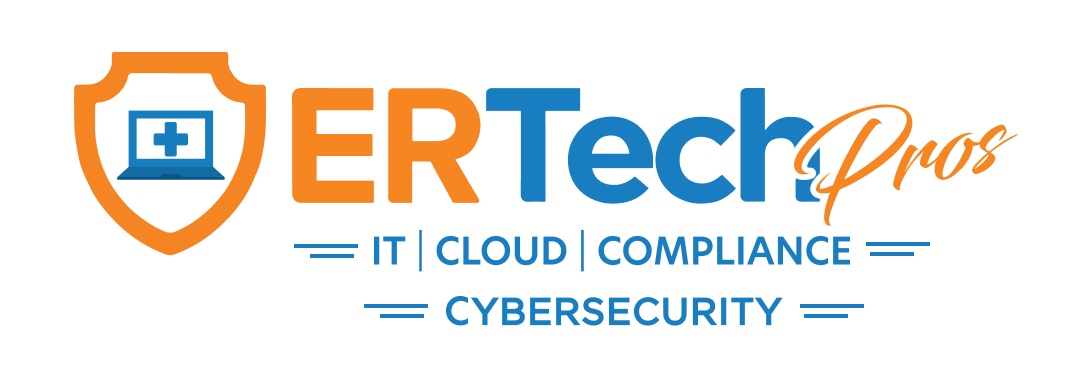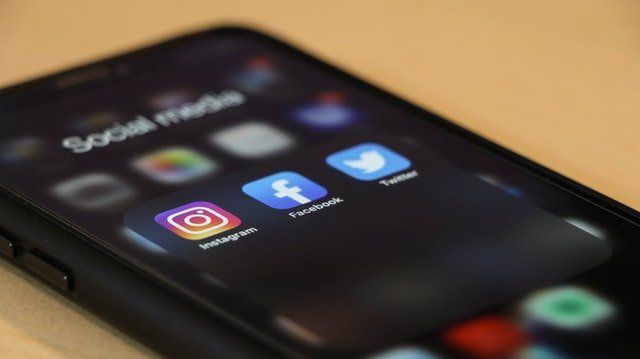In recent years, social media has become one of the most useful communication channels for healthcare professionals. Utilizing social media platforms will help you attract new patients and grow your practice.
Its popularity has grown more and more with each passing year, and now it is virtually impossible to avoid. If your practice is not on social media, you run the risk of getting left behind by your competitors.
As more and more people turn to social media for health-related information, the discretion of healthcare professionals on social media becomes an important concern.
How Social Media Can Hurt Your Medical Practice
Having one of your employees accidentally post something on social media that contains sensitive information can have devastating effects on your patients and your reputation. Such mistakes could lead to loss of patients’ trust, legal consequences, and HIPAA penalties.
On October 2019,
Elite Dental Associates was fined by the Office of Civil Rights (OCR) for disclosing protected health information (PHI) on Yelp, a crowd-sourced local business review and social networking site.
On one review, Elite replied with the patient's name, information on their treatment plan, and insurance coverage and costs. An OCR investigation was launched after a patient complaint. The search revealed similar comments made previously by Elite on Yelp. As a result, Elite paid a settlement of $10,000.
If PHI is disclosed either intentionally or due to negligence, this can result in civil or criminal penalties. Fines could run up to $50,000 per violation, depending on intent and prior offenses.
| Read more:
How to Avoid HIPAA Violations on Social Media
How Hackers Take Advantage of Social Media
Cybercriminals can use social media networks to steal information or manipulate users.
- They can compromise your clinic's official account or one of your employees' accounts.
- They can create a fake profile pretending to be you so they can communicate with your patients and obtain personal information.
- They can post links and send messages containing malware.
Hackers can also find a way into your network if your employees access social media through their work computers.
Since the need for social media is undeniable in the world we live in today, it cannot be ignored when we talk about cybersecurity. Healthcare organizations must include social media as part of their cybersecurity training programs.
Incorporating Social Media in Your Cybersecurity Training
Medical practices often use social media to communicate with their patients. Unfortunately, these practices are vulnerable to attacks since they often use sensitive patient data on their networks.
This is why healthcare cybersecurity training must include social media discretion.
It may seem like common sense, but many healthcare employees take to social media for promotional or instructional purposes without knowing the implications of their posts.
Cybercriminals are constantly evolving their strategies to infiltrate networks, and they are aware of social media posts. It’s important for healthcare employees to be mindful of what and where they post.
Cybersecurity Training Challenges in Healthcare
With cyberattacks continuing to happen around the world, it's becoming more necessary for the industry to educate their employees to protect them from any future attacks.
The problem is that it's too hard to keep up with technology. Your field already requires you to stay abreast of the latest advances. And now you have cybersecurity and rapidly evolving threats to worry about. Thus, clinics seeking to save resources and ensure that everything is done correctly
consult cybersecurity experts to handle their training.
Cybersecurity training is essential in the healthcare industry for the safety of not only your clinic, but the general public as well. It's necessary to train employees to avoid damaging patient records and exposing patients to risks.
It's imperative for this industry to address these cybersecurity training challenges in order to safeguard employees and patients.
Benefits of Good Cybersecurity Training for Healthcare Professionals
It’s not uncommon to read news about cyberattacks hitting the healthcare industry all over the United States. Most of these attacks could have been avoided if they had solid cybersecurity training.
Here are a few benefits of providing good cybersecurity training to your medical staff:
Prevent data breaches and maintain compliance
Obviously, the main benefit of good healthcare cybersecurity is to prevent data breaches that could cost your practice financial and reputational damage.
It's bad enough to have your data stolen because of human error. You’re also going to face expensive fines and worry about your medical license—all of these could be avoided if your staff is trained in cybersecurity.
Cybersecurity training keeps your staff informed about elaborate methods that can be used to steal confidential information. Knowing what to do and what not to do will prevent them from being victims of cyberattacks.
Get better at recognizing threats
Breaches commonly occur because of employee oversight and unfamiliarity with how hackers operate. With effective cybersecurity training, your staff can be vigilant in identifying potential threats.
They'll learn how to recognize social engineering attacks like
spear phishing and avoid opening
malicious links.
Get simulations of attacks
Learning by doing is more effective than merely listening to lectures. But you wouldn’t want to wait for an actual attack to learn how to combat one.
A
phishing simulation tests the knowledge and proactivity of your employees in a controlled environment. It’s a great way to assess their skill level in a realistic and hands-on environment without the actual risks.
With phishing simulations, you significantly reduce the odds of falling victim to actual attacks.
Increase patient confidence
All of us continue to patronize businesses we trust. This is especially true when it comes to healthcare, given the sensitive nature of what's at stake.
You can't protect your patients if you don't know how to protect yourself. Nobody wants to be treated by doctors who don't even know how to take care of their data.
Your medical staff can be your greatest asset, but they also pose the greatest risk. So, equip them with the knowledge they need to defend themselves against cyberthreats.
How to Prepare an Effective Cybersecurity Training Plan
With the number of attacks constantly rising, the need for comprehensive cybersecurity training in the healthcare industry is increasing. One of the most important aspects of this training is educating staff on how to behave on social media.
Social media has become a huge part of our lives, and medical staff need to know how to use it appropriately. This includes knowing what is appropriate to share with patients and how to conduct themselves professionally.
Here's how you can develop an effective cybersecurity training plan:
Identify the most common weaknesses
Start with the most obvious things you noticed. Pay attention to what your employees are prone to doing.
A diagnostic exam can also be used to determine what they're already good at and what they need to work on.
Check the news for recent healthcare cybersecurity attacks and devise a plan so your employees and your practice won’t be the next victim.
Think long term
It can never hurt to think long term and be steps ahead of cybercriminals. Just like taking care of our health, prevention is better than cure when it comes to cybersecurity. Your employees should learn how to spot the signs of an attack and what they should do if they suspect one.
Every couple of years, a new social media platform emerges. Create guidelines for how your employees should use these platforms.
Training shouldn't be a one-and-done process
Training is a crucial part of any cybersecurity plan, but it should never be solely used as a solution to a problem.
Since cybersecurity is an ever-growing field that changes rapidly with time, it’s important to monitor the progress of your employees. Offering periodic refresher courses will also prove beneficial.
You need to create a continuous training plan—one that doesn't end when the initial training has been completed.
Additionally, create guidelines for what employees can share on social media channels.
Take cybersecurity seriously and not just for mere compliance
Some practice owners don't prioritize cybersecurity and just do the bare minimum to comply with regulations, only to regret it after a costly data breach.
An effective social media cybersecurity training plan for your medical practice could include the following steps:
- Conduct a risk assessment to determine what data would be most valuable for an attacker to steal.
- Create a list of all platforms where your practice is present, and create an initial cybersecurity awareness program for each platform.
- Develop a timeline with milestones and deadlines to help establish clear goals that are measurable, achievable, specific, realistic, and time-bound.
Reinforce & cultivate good cybersecurity hygiene
Helping your staff build good cybersecurity habits can protect themselves and the patient data they work with every day.
- Send infographic emails containing dos and don'ts.
- Put up
cybersecurity posters reminding them of best practices.
- Have new desktop wallpapers every month featuring reminders.
Incorporate cybersecurity into your onboarding process
If cybersecurity is not already part of your onboarding process, now is the time to introduce it.
The onboarding process is an excellent opportunity to introduce protocols to new employees, who are now part of your defense line.
All of the most commonly encountered challenges, including password security and social engineering attacks, should be addressed from day one. It's incredibly important that you explain why following these best practices is crucial, rather than just covering the rules.
Create an environment of security right from the start to reduce the likelihood of breaches later on.
Outsource your cybersecurity training to experts
When it comes to medical practices, security is often the last thing on the mind of a doctor or medical professional. With how many patients they typically see and their busy schedules, they do not have time to think about cybersecurity.
Consider partnering with cybersecurity experts specializing in healthcare cybersecurity. They understand the unique needs and challenges of medical clinics and are capable of providing your staff with the best training possible, while saving you time and effort.
ER Tech Pros Can Train Your Employees
Social media has many benefits for your practice, so it’s impossible to eliminate it entirely. What we can do is educate employees on the best cybersecurity practices so your clinic data won’t be exposed on social media, which can result in devastating consequences.
If you don’t have the time and resources to conduct several training sessions and simulations, we can help you. ER Tech Pros specializes in cybersecurity training specifically designed for healthcare.
Our HIPAA-certified experts have been working with dozens of healthcare organizations for years. Our courses and simulations are designed to provide HIPAA compliance, prevent data breaches, and provide essential skills to your medical staff that will keep your information safe.
Set up a free consultation to assess your cybersecurity needs.















